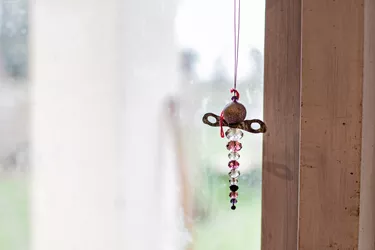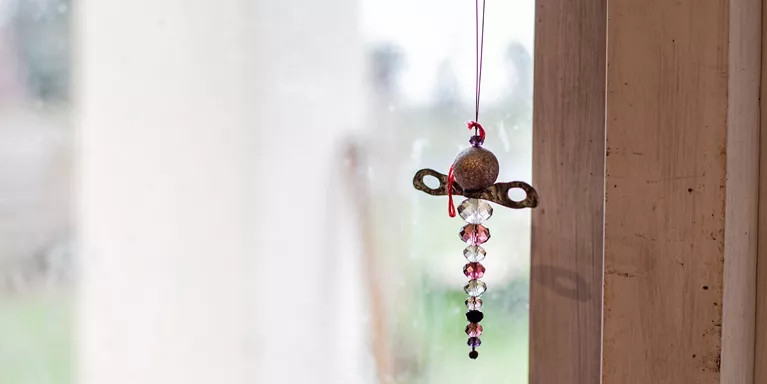Sleeping tips for the pandemic
Rhiannon blogs about coronavirus anxiety and how to get a good night’s sleep.
Last year I wrote a blog for Mind about sleep. It focused on how much I’d learnt about its importance when I went through an unexpected mental health crisis.
A year on, in the heart of the Coronavirus crisis, sleep, or lack of it, is a hot topic. Fear, anxiety and uncertainty all impact sleep. Add social isolation, plus a significant change in routine for most people, and sleep issues are destined to worsen.
I have certainly experienced sleep challenges over the last two months; but, as I value sleep so much, I have also used my experiences to overcome each one as they have arisen.
Dr Rangan Chatterjee recently provided the following seven tips to help you sleep:
- Wake up at the same time each day.
- See natural light every morning.
- Enjoy caffeine in the morning only.
- Write down your anxieties in a journal.
- Don’t watch the news before bed.
- Don’t watch the news before bed.
- Don’t watch the news before bed.
There is, of course, a reason why his final three tips were identical. He was repeating himself for emphasis because the news has had such a significant impact on people’s sleep, including mine.
I would have benefited from hearing this advice during the first few weeks of the crisis. I am English, my husband is Italian and we live in the Netherlands so, not only was I reading too much news, I was reading it from three different perspectives. Certainly in the early days, the news from Italy was particularly worrying. Before bed, I would take ‘one last look’ at the headlines to check how the situation was going.
I began to lie awake for a few hours during the night with corona worries buzzing around my head
It impacted on my sleep heavily. I began to wake up frequently, lie awake for a few hours during the night with corona worries buzzing around my head, and have far more vivid dreams. I would also check the news as soon as I woke up. From its usual zone of tranquility, my bedroom had turned into a news zone.
The obvious strategy would be to leave my phone in another room and not to check the news for an hour before going to bed or first thing in the morning. Do I manage that? Hmm, only partially. My phone stays in my room, as it’s my only form of contact with my family. But, after about three weeks of having to learn the hard way, I did quit reading or watching the news in the evening and the morning. Deciding to be up and active before reading or watching any news has definitely helped me re-establish good sleep patterns.
Having improved my relationship with the news, schools closed and we went into lockdown. As a teacher, I have adapted to the demands of remote teaching. As a parent, I have helped my teens adapt to the demands of home learning. And as a family, we have all adapted to spending an awful lot more time together.
Except for my husband, who seems to sleep through anything, this has had an impact on all of our sleep. I am certain it has a lot to do with those ‘zones’ once again. Both my daughters and I now spend the majority of our days in our bedrooms. With four of us frequently on video calls, we all need a room with a desk; so keeping bedrooms as work free zones has not been possible.
The calm space in front of my window is now a working space. My laptop, once used for journaling, is now my constant work companion. My pile of wellbeing books has been pushed aside and replaced by school texts, post-its and even my class mascot.
As a result, my brain really struggles to switch off, even when it’s time to chill out in my room. I go to bed exhausted, and fall into a deep sleep; and then I am generally wide-awake between 2-4am. It’s not always corona worries that keep me awake. It’s more work worries that have been brought on by corona. Are my students well? How are they and their families coping? Is my remote teaching good enough? What will it be like when we go back to school? Will I now get enough sleep to cope with tomorrow’s workload?
One of my daughters is talking more in her sleep. The other complains of taking ages to get to sleep
I have also noticed the impact on my daughters too. One of them is talking much more in her sleep. The other complains of taking ages to get to sleep. They give detailed, daily recounts of bizarre, dramatic dreams. And they have both, unusually, asked me to sleep in their rooms in the last few weeks. They are teenagers. They don’t usually want me in their rooms.
In my previous blog, I talked a lot about how many red flags I had missed about my declining mental health. Well, none of the issues above has become a red flag for any of us. They had the potential to become red but, now that I am so much more self-aware, I’ve taken active steps to ensure that didn’t happen.
Taking these various steps, at different times, has helped me manage my sleep and therefore look after my mental health:
Spend the evening in the kitchen and living room to create a divide between working and sleeping
- Avoid the news late at night or early morning.
- Put work-related items in my bedroom out of sight, if possible.
- Exercise outside before starting work every day.
- Spend the evening in the kitchen and living room to create a divide between working and sleeping.
When I wake up during the night I do the following:
- Use breathing exercises to calm my mind and relax my body.
- Tense and relax the muscles in my body, one by one.
- Remind myself that rest is almost as good as sleep.
- Have a hot drink (without caffeine) if I’m awake for more than an hour.
Without making these conscious decisions to protect my sleep, I am sure that the Covid-19 would have had a far more negative impact on it. Learning to read the signs that your sleep patterns are deteriorating is key; reacting to those signs with decisive steps is fundamental.


Information and support
When you’re living with a mental health problem, or supporting someone who is, having access to the right information - about a condition, treatment options, or practical issues - is vital. Visit our information pages to find out more.
Share your story with others
Blogs and stories can show that people with mental health problems are cared about, understood and listened to. We can use it to challenge the status quo and change attitudes.

















